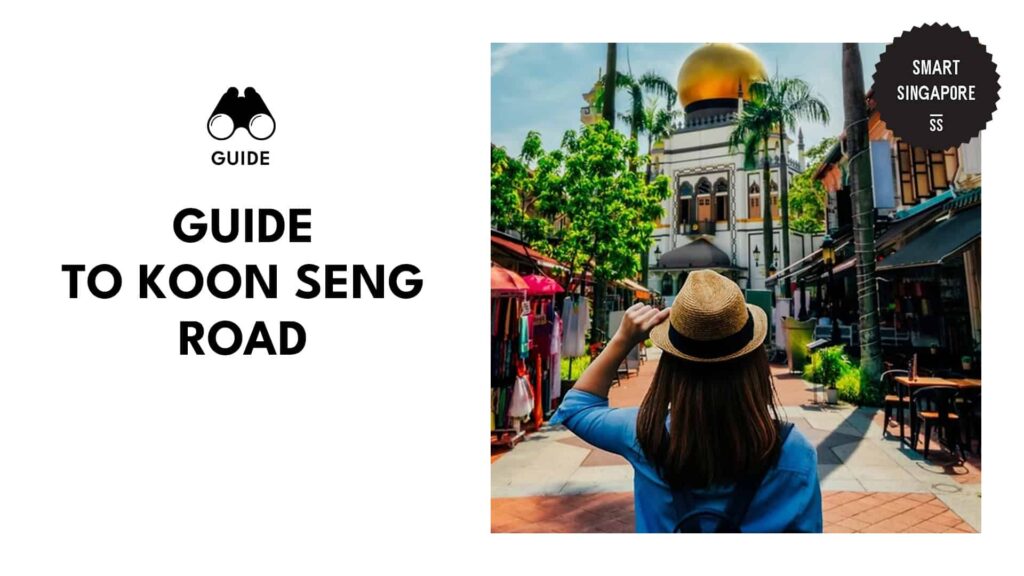Categories > Guides and Tips

How to survive in Singapore without a job? Here’s what I did!
- Budgeting
- Assess your savings and financial resources and create a realistic budget
- Track your expenses
- Find affordable housing options
- Rent a room or co-living space
- Consider government housing
- Negotiate your rent
- Find free or low-cost food
- Buy from hawker centres
- Look into community food banks
- Cook at home
- Use free or inexpensive transportation
- Use public transport
- Walk or do bike-sharing
- Use free shuttle services
- Healthcare on a Budget
- Look into polyclinics
- Visit community health centres
- Seek unemployed health insurance
- Cheap Entertainment and Leisure
- Visit free parks and museums
- Attend community events and festivals
- Utilise public libraries and spaces
- Free Education and Skills Development
- Enrol in free online courses
- Attend community centre workshops
- Volunteer for skill-building opportunities
- Network and find odd jobs
- Join job-seeking social networks
- Get a freelancing or gig economy job
- Barter your skills and services
- Seek legal and financial assistance
- Seek non-profit orgs’ advice
- Apply for government assistance
As a local, I’m here to say that life as a Singaporean isn’t cheap by a long shot.
Thinking about quitting your job or already in-between gigs? I’ve been there and I’ve done that—and it’s certainly doable! That’s why I made this guide to help you make the most of your time here without breaking the bank, whether you’re an expat adjusting to a new life or between jobs and trying to manage your expenses.
So let’s dive into these essential tips for surviving in Singapore without a job, or on a tight budget.
Budgeting

Assess your savings and financial resources and create a realistic budget
By managing your finances wisely, you can make the most of your resources and navigate the high cost of living in Singapore more comfortably.
Begin with assessing your savings and financial resources. Take stock of your current savings, any available funds, and potential income streams, such as part-time work, freelancing, or support from family and friends.
Next, evaluate your monthly expenses, including rent, food, transportation, and other essentials. This clear overview will help you create a realistic budget, ensuring you can manage your finances effectively while seeking ways to supplement your income.
Track your expenses
Tracking your expenses is crucial for maintaining financial control. Keep a detailed record of all your spending, whether it’s on necessities like groceries and rent or discretionary items like dining out and entertainment.
Review your spending regularly to identify patterns and areas where you can make adjustments. This ongoing process will help you stay accountable to your budget and make informed decisions about where to allocate your resources more effectively.
Find affordable housing options

Rent a room or co-living space
Renting a room or opting for a co-living space can significantly reduce your housing costs in Singapore. By sharing an apartment or living in a community-oriented environment, you not only save on rent but also on utilities and other shared expenses.
Additionally, co-living spaces often provide a sense of community and networking opportunities, which can be beneficial if you’re new to the city or between jobs.
Consider government housing
Government housing options, such as HDB flats, can be a cost-effective solution for long-term stays in Singapore. These flats are often more affordable than private rentals and provide a range of options to suit different budgets and family sizes.
Moreover, government housing schemes sometimes offer subsidies or financial assistance to eligible residents, further reducing living expenses.
Negotiate your rent
Negotiating your rent can lead to significant savings on your housing expenses in Singapore. Approach your landlord with a respectful and well-researched proposal, highlighting comparable rental rates in the area to support your request for a lower rent.
Additionally, consider offering something in return, such as signing a longer lease or agreeing to take on minor maintenance tasks. This can make your offer more attractive to the landlord and increase your chances of securing a reduced rent, helping you manage your budget more effectively.
Find free or low-cost food

Buy from hawker centres
Buying from hawker centres is one of the best ways to enjoy delicious and affordable meals in Singapore. These food hubs offer a wide variety of local dishes at a fraction of the cost of restaurant dining, allowing you to eat well without breaking the bank ((around S$3 per meal!).
Moreover, hawker centres are conveniently located throughout the city, making it easy to find a meal wherever you are.
Look into community food banks
Community food banks can be a lifesaver when you need access to free or low-cost food in Singapore. These organisations provide essential groceries and meals to those in need, helping you stretch your budget during tough times.
Check out The Food Bank Singapore, Food From The Heart, and Secondmeal.
Cook at home
Cooking at home is an excellent strategy to save money while ensuring you eat healthy and satisfying meals. By purchasing ingredients in bulk and planning your meals, you can significantly reduce your food expenses compared to dining out.
Additionally, cooking at home allows you to control portion sizes and make the most of leftovers, further stretching your budget. Experimenting with simple, budget-friendly recipes can also make home cooking enjoyable and help you discover new culinary skills.
Use free or inexpensive transportation

Use public transport
Using public transport is one of the most cost-effective ways to get around Singapore. The extensive network of buses and MRT trains covers almost every part of the city, providing reliable and affordable transportation options for daily commuting.
By purchasing an EZ-Link card or a monthly travel pass, you can save even more on fares.
Walk or do bike-sharing
Walking is a great way to save on transportation costs while also staying healthy and exploring Singapore’s vibrant neighbourhoods. Many areas of the city are pedestrian-friendly, making it easy to get around on foot for short distances.
Additionally, using bike-sharing services provides an affordable and eco-friendly alternative to public transport. Check out SG Bike and Anywheel for this service.
Use free shuttle services
Taking advantage of free shuttle services can help you save money on transportation in Singapore. Many shopping malls, business districts, and residential areas offer complimentary shuttle buses to and from key locations, providing a convenient and cost-free travel option.
You can find schedules of free shuttles for the airport, shopping and health centres, tourist attractions, and campuses in this link.
Healthcare on a Budget

Look into polyclinics
Polyclinics can provide affordable healthcare services in Singapore. These government-subsidised clinics offer a range of medical treatments, including general consultations, vaccinations, and diagnostic tests, at lower costs compared to private clinics.
They also provide specialist referrals and follow-up care, ensuring comprehensive healthcare without the hefty price tag.
Visit community health centres
Visiting community health centres is another cost-effective way to access healthcare in Singapore. These centres offer a variety of services, including dental care, physiotherapy, and chronic disease management, often at subsidised rates.
Community health centres are strategically located to serve residential areas, making them convenient for regular visits.
Seek unemployed health insurance
Seeking health insurance specifically designed for the unemployed can provide a crucial safety net during periods without a job.
Two major assistance schemes for Singaporean citizens are MediFund, which provides discretionary funding for those unable to pay medical bills after other subsidies, and the Community Health Assist Scheme (CHAS), which offers income-based subsidies for medical and dental care with participating providers.
These insurance plans often offer basic coverage at reduced premiums, ensuring you have access to necessary medical care without significant financial burden.
Cheap Entertainment and Leisure

Visit free parks and museums
Visiting free parks and museums is an excellent way to enjoy Singapore’s rich cultural and natural offerings without spending a dime. Parks such as the Singapore Botanic Gardens and East Coast Park provide beautiful, serene environments for relaxation, exercise, and family outings.
Museums like the National Museum of Singapore and the Singapore Art Museum occasionally offer free admission days or special events.
Attend community events and festivals
Attending community events and festivals is a fantastic way to dive into Singapore’s lively cultural scene without breaking the bank. Many neighbourhoods regularly host exciting events like night markets, cultural performances, and holiday celebrations that are free and open to everyone.
Check out the Singapore Night Festival, a nighttime arts and culture festival with light installations, performances, and activities from late August to early September. During CNY, attend the Chingay Parade, an annual street parade featuring colourful floats, performances, and cultural displays.
Utilise public libraries and spaces
Taking advantage of public libraries and spaces in Singapore is a fantastic way to enjoy a variety of recreational and educational activities without spending a fortune.
Public libraries are a treasure trove of free resources, from books and digital media to study areas and exciting workshops and talks. Community centres and parks also offer free activities and facilities like sports courts, fitness classes, and meeting rooms.
Free Education and Skills Development

Enrol in free online courses
Enrolling in free online courses is an excellent way to enhance your skills and knowledge without spending money.
Platforms like Coursera, edX, and FutureLearn offer a vast array of courses from prestigious universities and institutions, covering a wide range of subjects.
These courses are flexible, letting you learn at your own pace and fit studies around your schedule.
Attend community centre workshops
Attending community centre workshops is a fun and affordable way to learn new skills and engage in various activities. These workshops cover everything from arts and crafts to fitness and personal development, catering to all interests and ages.
Vertical Institute, a leading tech boot camp in Singapore, is a good resource. It regularly offers free workshops on essential skills for the future job market.
Volunteer for skill-building opportunities
Volunteering is an awesome way to gain valuable experience and develop new skills without spending a dime. In Singapore, many organisations offer volunteer positions that let you contribute to meaningful causes while boosting your abilities in project management, communication, and teamwork.
Plus, volunteering opens doors to networking opportunities and potential job prospects as you meet people from various industries. Check out the best places to sign up for volunteer work in Singapore.
Network and find odd jobs

Join job-seeking social networks
Joining job-seeking social networks is a fantastic way to discover job opportunities and get career advice. Platforms like LinkedIn and local job boards (JobStreet SG and JobsDB) connect you with employers and industry professionals who can offer valuable insights and referrals.
Get a freelancing or gig economy job
A freelancing or gig economy job is a flexible way to earn income while you look for full-time employment. Platforms like GrabJobs, Fiverr, and Upwork offer various opportunities, from driving and delivery services to digital marketing and graphic design tasks.
These jobs allow you to work on your terms, choosing when and how much you want to work.
Barter your skills and services
Bartering your skills and services is a creative way to meet your needs. By offering your expertise, whether it’s tutoring, graphic design, or home repairs, you can exchange services with others who have the skills you require.
This system allows you to build a network of mutual support and cooperation within your community.
Seek legal and financial assistance

Seek non-profit orgs’ advice
Seeking advice from non-profit organisations can be a game-changer during tough times. Many offer career counselling, financial planning, and legal advice specifically designed to help those in need.
The Singapore Workforce Development Agency (WDA) offers career guidance, skills training, and employment support through its WSG Career Services, while the Community Development Councils (CDC) provide career coaching and job placement assistance.
Apply for government assistance
Applying for government assistance can be a crucial lifeline when you’re in need. Singapore offers various support programs, such as financial aid, housing assistance, and healthcare subsidies, designed to help residents during tough times.
The NEU PC Plus Programme provides low-income households with affordable laptops and broadband access, essential for job searching and skill development.
The SGUnited Jobs and Skills is a government initiative offering job opportunities, traineeships, and skills training programs to support those seeking employment.





